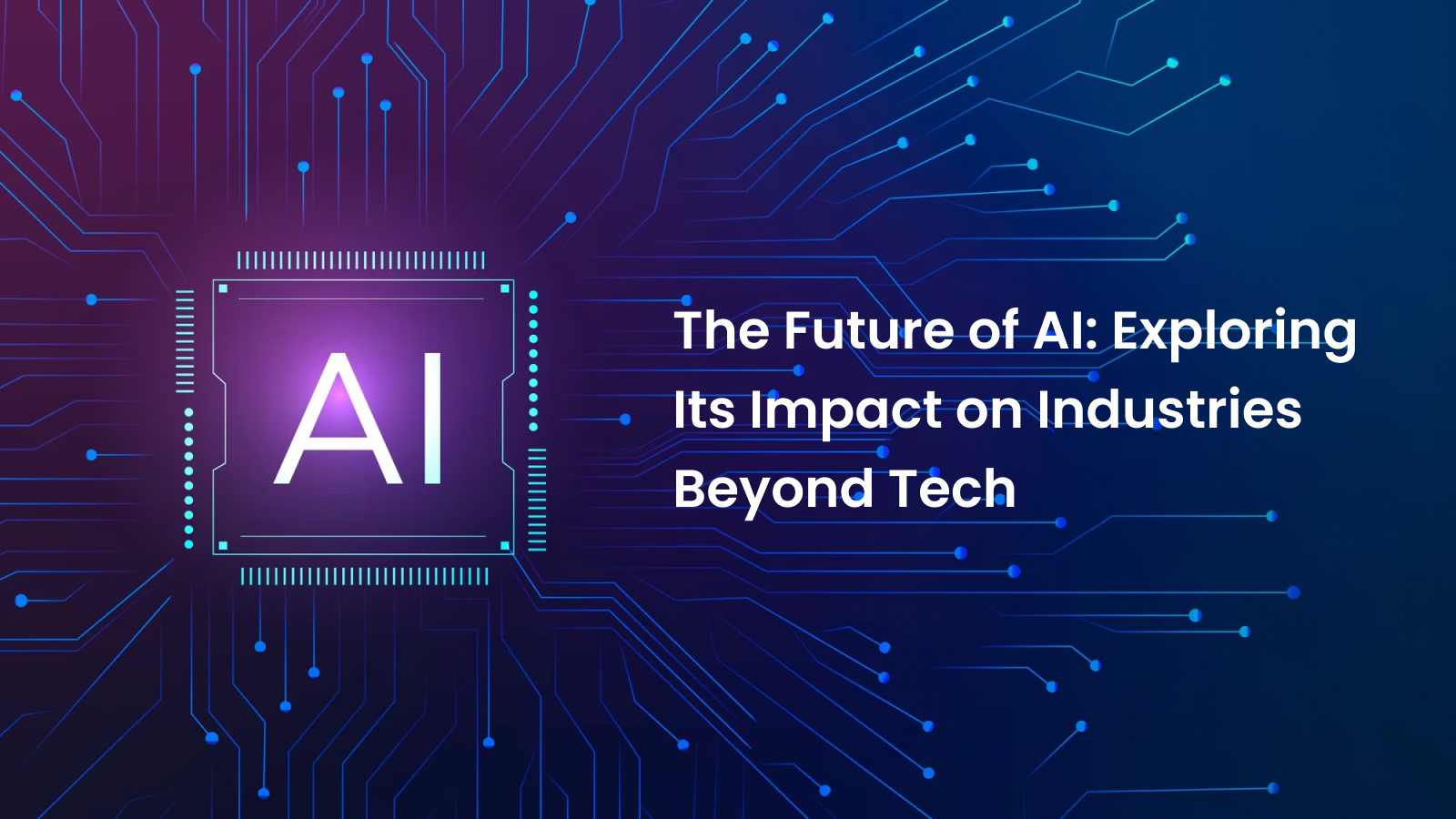
Introduction
Artificial Intelligence (AI) has emerged as a transformative technology, revolutionizing various sectors and industries. While its impact on the tech industry is well-known, AI’s potential reaches far beyond the confines of technology itself. In this blog, we will delve into the future of AI and explore its impact on industries beyond tech, backed by real-life case studies and examples.
Healthcare Industry:
AI is poised to revolutionize healthcare by improving diagnostics, patient care, and drug development. For instance, IBM’s Watson AI platform is being used to analyze vast amounts of medical data and assist doctors in diagnosing diseases such as cancer more accurately. AI-powered algorithms are also being developed to predict and prevent potential health risks, enabling early intervention.
Case Study:
Google’s DeepMind developed an AI system that can detect over 50 sight-threatening eye conditions with remarkable accuracy. By analyzing retinal scans, the AI model can identify diseases like diabetic retinopathy, leading to early treatment and prevention of vision loss.
Finance and Banking:
AI is reshaping the finance and banking sector by enhancing customer service, fraud detection, and risk assessment. Chatbots and virtual assistants powered by AI provide personalized and efficient customer support. AI algorithms analyze vast financial data to identify patterns and detect fraudulent transactions in real-time, ensuring enhanced security.
Case Study:
Capital One, a leading bank, uses AI to detect fraudulent activities. By employing machine learning algorithms, they can identify unusual spending patterns and flag potential fraudulent transactions, protecting both the bank and its customers.
Agriculture:
AI has the potential to revolutionize agriculture, enabling sustainable farming practices, optimizing crop yield, and ensuring food security. AI-powered drones and satellite imagery can monitor crops, detect diseases or nutrient deficiencies, and provide precise recommendations for irrigation and fertilizer application.
Case Study:
The startup Blue River Technology developed an AI system called “See & Spray” that can distinguish between crops and weeds. Using computer vision, the AI model can accurately target and spray herbicides only on the weeds, reducing the use of chemicals and minimizing environmental impact.
Transportation:
The transportation industry is being transformed by AI with the advent of autonomous vehicles and smart traffic management systems. AI algorithms enable self-driving cars to perceive their surroundings, make real-time decisions, and navigate safely. Additionally, AI-powered algorithms optimize traffic flow, reduce congestion, and enhance overall transportation efficiency.
Case Study:
Waymo, a subsidiary of Alphabet Inc., has developed a fleet of self-driving cars powered by AI. These autonomous vehicles have undergone extensive testing, accumulating millions of miles on public roads, and are paving the way for a future where transportation is safer, more accessible, and eco-friendly.
Conclusion
The future of AI extends well beyond the tech industry. With its potential to transform various sectors, AI is poised to revolutionize healthcare, finance, agriculture, transportation, and many other industries. Real-life case studies and examples demonstrate how AI is already making a significant impact by improving diagnostics, customer service, crop yield, and transportation efficiency. As AI continues to evolve and integrate into our daily lives, it is crucial for industries to embrace this technology and leverage its potential for positive change. The future is indeed promising as AI opens up new possibilities, enhances productivity, and solves complex challenges across industries.

